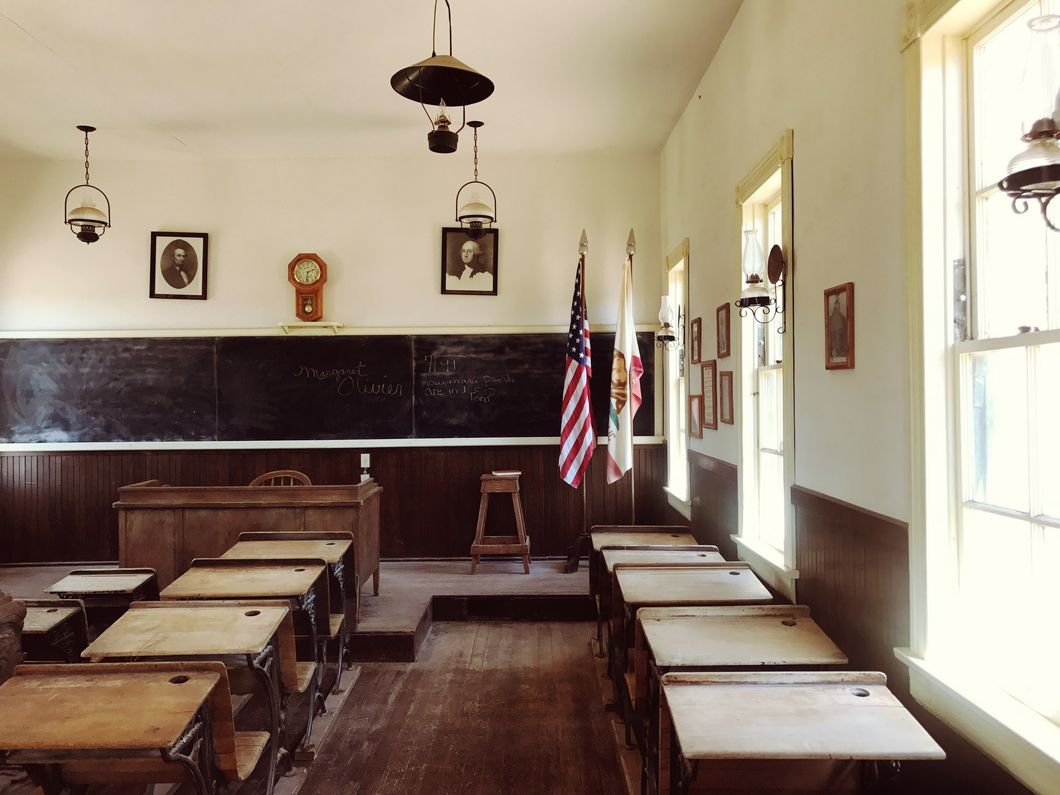I'm not an education major, but I have spent a significant amount of time discussing the American education system and how it could be better. I've come up with four ways schools could change that would make family life easier as well as create learning methods better suited to each student.
1. Eliminate Summer Break

I know families love their summer breaks for vacations and spending time outside, but hear me out. I would eliminate summer break and replace it with a 3-month winter break from Thanksgiving to early March.
The reason students have a summer break is because, way back in the day, kids needed to be home to help work in the fields during the summer. Times have obviously changed and kids no longer need to be home to work. If kids had three months off in the winter instead they would avoid two key issues.
First of all, kids would not spread illnesses nearly as much. Ever notice that when one kid gets sick, the entire class seems to get sick, including the teacher? By being home during flu season, kids wouldn't share as many germs and influenza would be much less rampant. Perhaps society could nearly eliminate the flu shot altogether?
Secondly, schools would not have to worry about snow days and getting kids to school safely in bad weather. Parents would no longer have to watch for snow day alerts, delays, or early dismissals. If the weather is bad and the roads are icy, the problem is solved because kids wouldn't have to go anywhere.
Additionally, kids would be able to spend more time with their families during the holidays!
2. Eliminate Grade Levels Set By Age

Kids of the same age don't always learn at the same pace. You've been through grade school and I'm sure you've seen this in the classroom.
Instead, grade levels should be set by deep, one-on-one evaluation by a child psychologist specializing in learning abilities. Such evaluations would determine a child's most effective learning method and which classes would be best for him or her.
In addition, these evaluations would put more emphasis on mental health. Experts could recommend specific classes for children with anxiety or ADHD, for example. This specialized learning would help students excel faster!
3. Eliminate Standardized Testing

Pretty much all of us hated it. A few of the students in my classes had the tests memorized because we took them so many times. So eventually we would just fill in answers and be done within a matter of minutes. There was no point in taking the test.
Teachers spend most of the year teaching their students how to prepare for and take the tests. They are required to emphasize the "importance" of standardized testing so much that it instills a sense of anxiety in their students. It's the test that determines their educational future. And if they fail it, they'll be set back for years. An intelligent student might fail the test not because of lack of intelligence but due to testing anxiety. Testing anxiety does not make a student stupid. Therefore, standardized testing does more harm than good.
So what do students actually learn throughout the year? Not much besides how to take a fill-in-the-bubble test. Eliminating the tests would allow for a deeper study of various subjects. Students could become experts in particular areas because they're spending more time studying them.
4. Eliminate Testing Altogether

Tests often include rote memorization of facts followed by regurgitation of said information after the test is complete. That is NOT genuine learning. Some students retain the information but most forget it.
The solution: replace tests with lengthy projects, presentations, research, case studies, experiments, and the like. This criterion not only ingrains information and practices deeper into the mind, but it also gives material for resumes and portfolios later in life.
In some subjects, rote memorization might seem necessary. For example, when learning vocabulary words, instead of memorizing definitions a student could write a story utilizing said vocab words that demonstrates the correct meaning of each word.
In math, instead of testing trigonometry formulas a student could perform a case study that involves said formulas and write a detailed piece demonstrating their correct use. And of course, remembering to show his/her work!
Personally, my high school trig teacher would bake a loaf of bread, slice it, have each student find the volume of his/her slice of bread and when we got it correct, we could make a PB&J sandwich! It was fun, engaging, and ended in a delicious snack! Disclaimer: had a student been allergic to peanut butter, we wouldn't have done the assignment.
Overall, it would take a lot of work to change the American education system this drastically. But it could be done. And I believe it would be highly beneficial to all the students in this country.



















